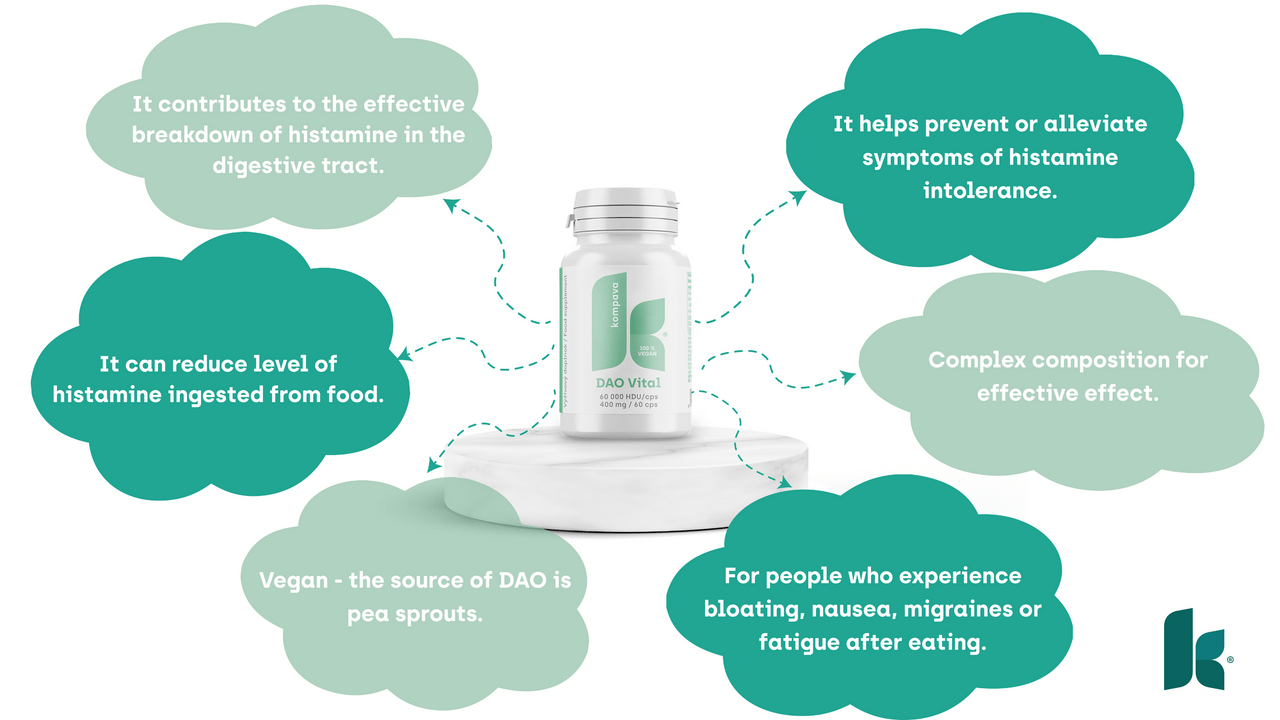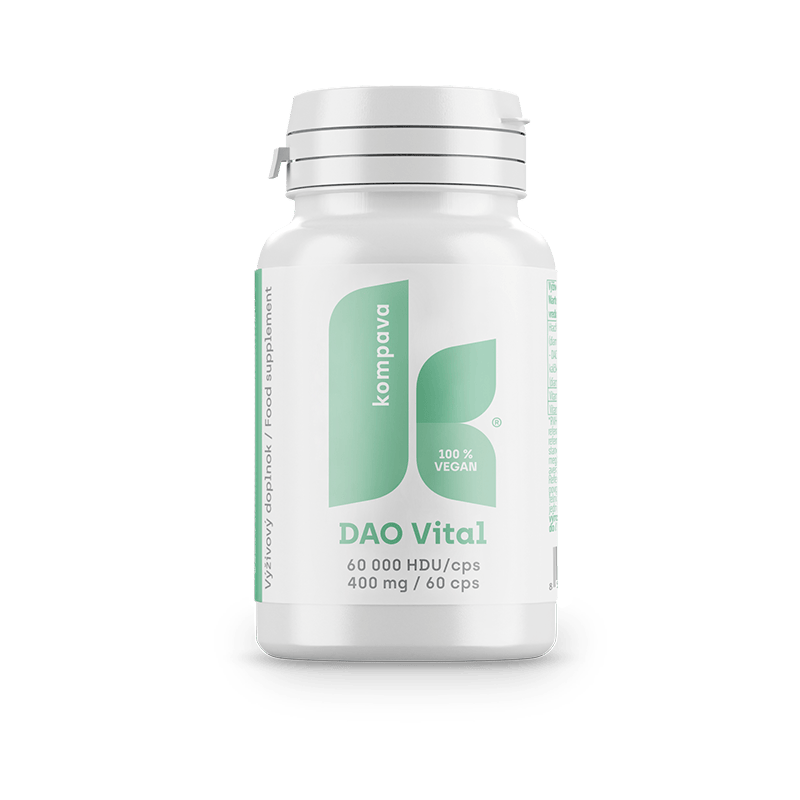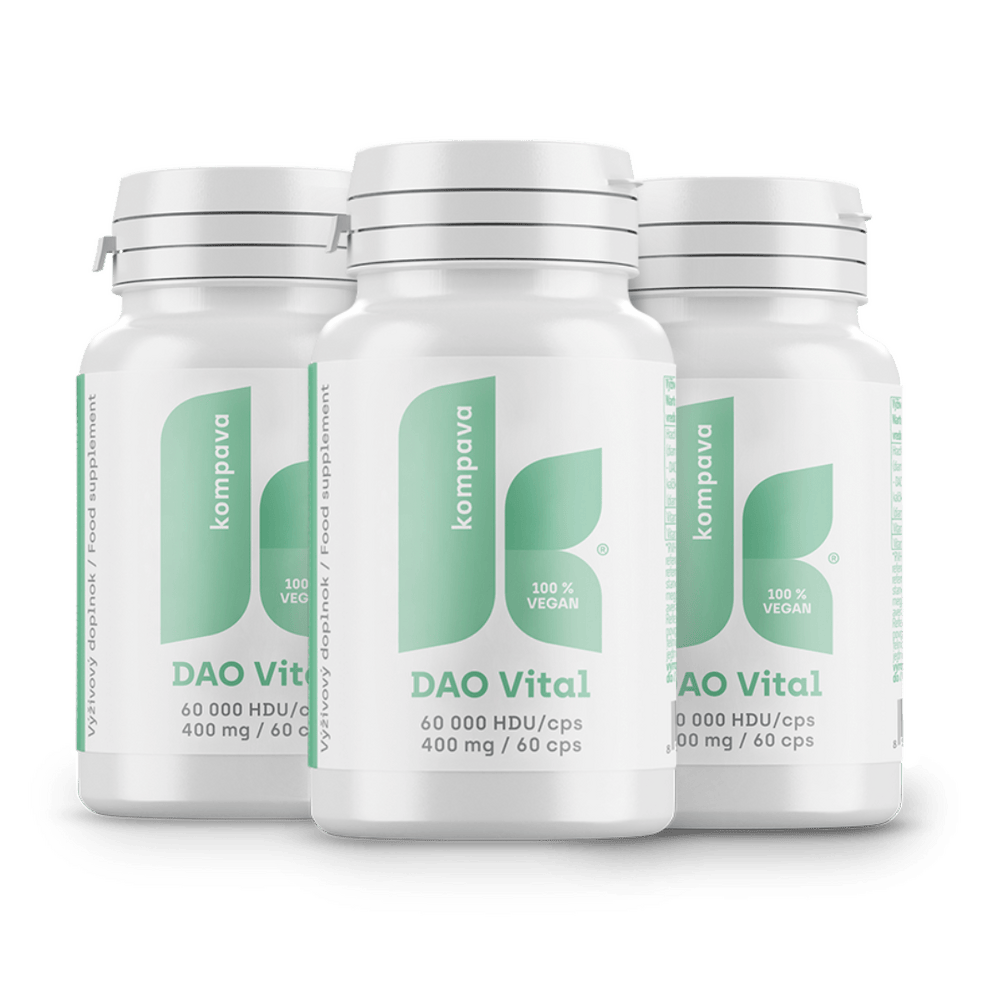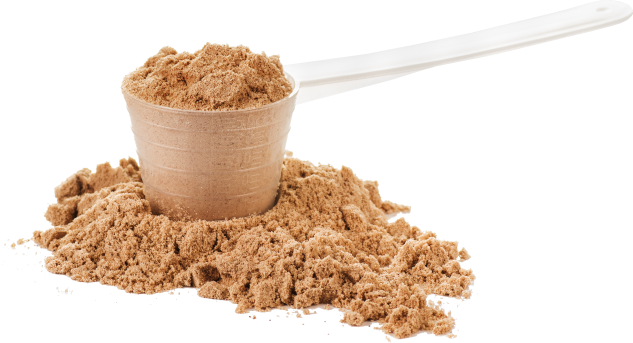
Histamine is a biologically active substance that occurs in the body as part of the immune system and plays an important role in various physiological processes. It is an organic compound that acts as a neurotransmitter, but also as a regulator of inflammatory and allergic reactions.

Histamine has several functions in the body:
- involved in the body's immune response during inflammation
- causes typical allergy symptoms such as swelling, itching or runny nose
- dilates blood vessels and increases their permeability
- stimulates acid production in the stomach for digestion
- acts as a neurotransmitter in the brain, affecting sleep, wakefulness, and memory
Increased levels of histamine in the body can cause a wide range of health issues known as histamine intolerance. Symptoms vary depending on individual sensitivity and may affect multiple organ systems:
- digestive issues (abdominal pain, diarrhea, bloating or nausea)
- skin reactions (hives, redness, eczema)
- respiratory symptoms (runny nose, itchy eyes, cough)
- neurological and cardiovascular symptoms including migraines, fatigue, dizziness, palpitations, or low blood pressure
Histamine intolerance (also referred to as HIT) is a condition in which the body is unable to properly break down histamine.
Diamine oxidase (DAO) is the enzyme responsible for breaking down histamine in the body, primarily in the intestines. When DAO activity is reduced or production is insufficient, histamine accumulates, which may lead to histamine intolerance and unpleasant physical reactions. Insufficient DAO enzyme production may occur when the body cannot adequately process dietary histamine or when DAO levels are too low.
After taking DAO Vital, the enzyme is released in the digestive tract where it starts breaking down histamine in food before it is absorbed into the bloodstream. This contributes to the reduction of total histamine levels in the body and helps prevent or alleviate symptoms of histamine intolerance.
„Symptoms of histamine tolerance are alleviated by the enzyme DAO, in various nutritional supplements. Some patients find it helpful to take it 15-30 minutes before meals. Sufficient intake of vitamins C and B6, probiotics (but be careful, some can form histamine, e.g. strains Lactobacillus rhamnosus GG, Bifidobacterium infantis are more suitable).
It helps a lot when a person keeps a symptom diary: they note what they ate and how they feel, after a few weeks from this diary they can determine which foods are causing the problem.“
MuDr. Juraj Klička, pediatrician, immunologist and allergist;
Foods high in histamine:
Some foods are high in histamine or promote its release in the body, which may cause symptoms in individuals with impaired histamine degradation. This is usually due to reduced DAO enzyme activity.
- Fermented foods (sauerkraut, kimchi, soy sauce)
- Aged cheeses (parmesan, camembert)
- Cured and processed meats (salami, sausage)
- Alcohol (wine, beer, champagne)
- Canned and fermented beverages
- Fish and seafood (especially canned and smoked)
- Chocolate and cocoa
- Nuts (walnuts, cashews)
- Tomatoes, spinach and eggplant
DAO Vital contains:
- DAO (Diamine Oxidase)
An enzyme responsible for histamine degradation in the body. DAO's primary function is to break down histamine in various tissues, especially in the intestines, helping to prevent excessive accumulation.
- Vitamin C
May help stabilize mast cells and reduce histamine release. It is also a powerful antioxidant that supports gut health.
- Vitamin B6
Important for histamine metabolism, as it assists DAO in breaking down histamine. A lack of B6 may affect DAO efficiency.
Scientific studies on DAO effectiveness
- Izquierdo-Casas et al. (2012): This study showed that DAO supplementation reduces migraine frequency in patients with histamine intolerance.
- Manzotti et al. (2016): A clinical study confirmed the effectiveness of DAO in relieving symptoms of histamine intolerance such as digestive problems and skin reactions.
- Reese et al. (2017): Research showed that combining DAO with vitamins C and B6 significantly improved histamine degradation and reduced inflammatory responses in the body.











